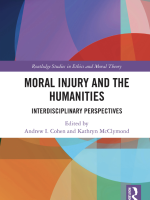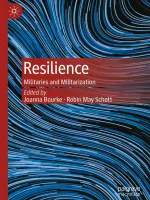The moral challenges of moral injury
In 2006, at the height of the Iraq War, the U.S. military found itself in the middle of a mental-health crisis. More American soldiers were committing suicide than were being killed in action in Iraq, while reports estimated that one-third of the troops returning from Afghanistan and Iraq might qualify for a psychiatric diagnosis.
The counterinsurgency warfare in Afghanistan and Iraq had often blurred the distinction between combatants and non-combatants, confronting soldiers with difficult ethical decisions about when to use force. Already by 2003, 20% of U.S. soldiers and Marines reported having killed non-combatants. But mental-health experts lacked the vocabulary and methods to address the moral dimensions of trauma.
Some psychologists and psychiatrists in the U.S. military began to use the term ‘moral injury.’ The term referred to the anguish of having been betrayed by one’s leaders, as well as the sense of having betrayed oneself, one’s friends, or one’s ideals.
In a new book chapter, senior researchers Johannes Lang and Robin May Schott explore the history and theoretical foundations of ‘moral injury.’ Drawing on original interviews with key experts in the U.S. military and American psychology, they analyze how the concept of moral injury challenges the medicalized conception of post-traumatic distress as disorder and revives an earlier understanding of trauma as a moral form of suffering.
The concept of moral injury has now begun to reframe broader discussions on violence and trauma, also within civilian health care and emergency services. A new language of suffering is taking shape, centered around the idea of moral injury. But if the concept is to capture a distinctly moral form of suffering, Lang and Schott argue, it must be lifted from the cognitive-psychological framework and placed firmly in its social and political context to address both moral injury and moral repair.
The chapter is part of “The New Psychology of War” project, funded by the Independent Research Fund Denmark (2017-2022).
DIIS Experts





